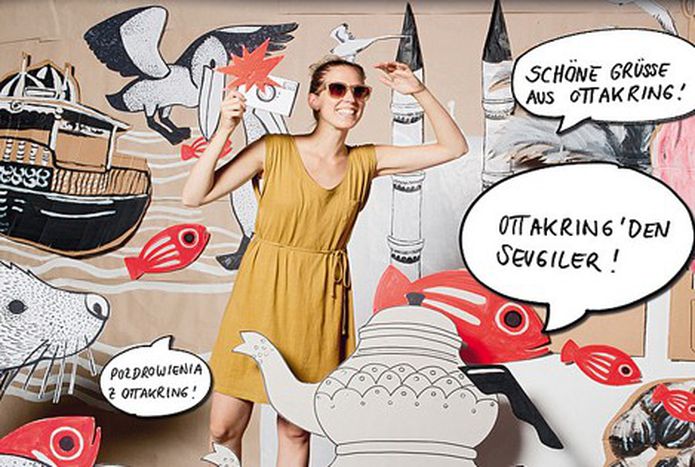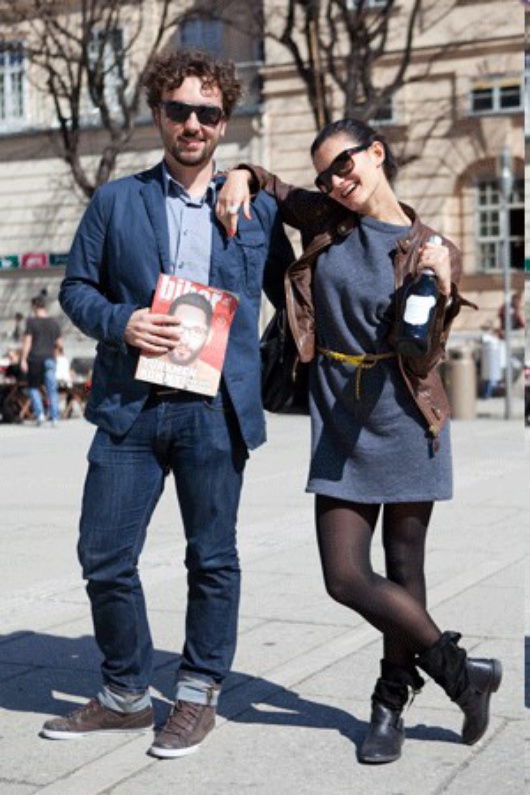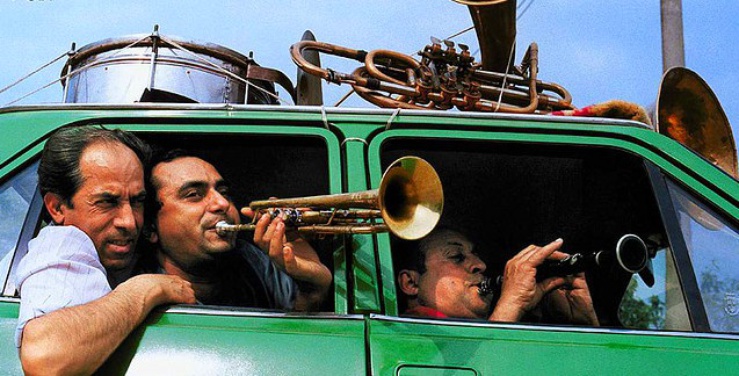
Yugosla-Vienna? Rolling through Austrian capital's multifarious 'Yugosphere'
Published on
Translation by:
Marie JacksonVienna is a capital with multiple identities. The controversially-titled ‘Yugos’, Vienna's single largest migrant group from the former Yugoslavia, represent 10% of the total population. Migrants explain how ‘Yugo’ can be a cliché and pejorative label that marks out the community as different
Ljubomir Bratić, philosopher and sociologist, frowns at the word 'identity'. The political activist and employee of Integration House prefers to talk about self-image and negative ascription on this warm afternoon at a coffee house on Karlsplatz. Ljubomir's parents came to Austria as first-generation guest workers for whom the Socialist Federal Republic of Yugoslavia no longer had a place. In Vienna, on the other hand, there were cleaning and construction jobs – work, for which guest workers were recruited. These were largely people from areas with poor infrastructure, such as the Serbian Wallachia, from where Ljubomir's parents hailed.
Stereotypical 'chavs' from the Balkan Mile
 Once they arrived in Vienna, they were ‘Yugos’, workers with a temporary right to residency, who ended up remaining in Vienna for over fifty years. 'From the moment we left Yugoslavia we were met with high expectations, both in Vienna and in Yugoslavia,' says Ljubomir Bratic. Work until you drop in Vienna – for a house built in the ‘Yugoslavian homeland’ and for a western car that would be presented to those left at home each year in the summer holidays. It is a little show of pride that says: 'Look, you didn't want us. Now we are in the west and we have made it big'.
Once they arrived in Vienna, they were ‘Yugos’, workers with a temporary right to residency, who ended up remaining in Vienna for over fifty years. 'From the moment we left Yugoslavia we were met with high expectations, both in Vienna and in Yugoslavia,' says Ljubomir Bratic. Work until you drop in Vienna – for a house built in the ‘Yugoslavian homeland’ and for a western car that would be presented to those left at home each year in the summer holidays. It is a little show of pride that says: 'Look, you didn't want us. Now we are in the west and we have made it big'.
Today, most Balkan immigrants shy away from the practice. Ivana Cucujkić, 28, has been a columnist for the multicultural magazine dasBiber for five years. At Starbucks in the Millenium City shopping centre, a common meeting place for the ex-Yugoslavian community, Ivana is getting worked up; what role does the term 'Yugo' play in her life? 'In Austria we are recognised as a group in our own right, but one inferior to those back at home,' she explains. Ivana, herself, sees Yugos as immigrants who travel back home in the summer to go to nightclubs and spend time exclusively in each other’s company. For the Yugoslavian Viennese, the west Balkan countries are heaven on earth; everything there is much cheaper than in Western Europe.
For the Yugoslavian Viennese, the west Balkan countries are heaven on earth; everything there is much cheaper than in western Europe
Ivana criticises the insensitive attitudes of her peers: 'There are people who can hardly wait to step out of their car and show off, or to talk about their salaries. I know that it is hard for people back home to believe, but my salary doesn't go very far in Vienna.' Ivana consciously distances herself from the negatively-viewed Viennese Yugosphere. Yet sometimes, she is still drawn to it on Ottakringer street, the so-called 'Balkan Mile' in Vienna's 16th district. 'There's this special feeling I get that draws me in around once a month. But if I felt that way all the time it would drive me mad.'
Vienna, baby!
Traditional Austrian music underlain with a techno beat drones on in the nightclubs lining Ottakringer Street. Here, Bosnian, Croatian, Serbian and Montenegrin tunes are blaring from inside crowded nightclubs thronging with clubbers wearing gold chains and mini-skirts. Ivana's 'special kind of feeling' comes up in conversation at KidPex's CD release in the Viennese Ostklub. In just over an hour, the rapper will take to the stage alongside his peer and colleague BloodyMC. The two young men are currently sat relaxing backstage, surrounded by members of the Tschuschenrap-Crew - aka the ‘Yugo Rap Crew’ - and Azra Halilovic, a Bosnian songbird whose job it is to warm up the crowd ready for KidPex's set. They display no hint of discomfort or agitation. Emblazoned on the rapper's t-shirt is 'Wien Oida, Beč Oida' ('Vienna, baby, Vienna, baby!'). That says it all: 'Vienna is absolutely our home,' effuses BloodyMC, who has lived in Vienna as a guest worker for five years now.
KidPex, who moved to Vienna from Zagreb with his parents aged nine, and who now has a BA in marketing, nods in agreement. 'Home is where the past and the present converge, where life happens,' he says. 'I associate Vienna with a lot of my history and with many good friends.' How do other 'Viennese' see things? Naturally, judgements are made; they would be called 'Yugos', from time to time. 'When it's meant as a joke, it's ok. But when the word is thrown about with discriminatory undertones, then, of course, it's not acceptable,' explains KidPex. The two men do not see themselves as members of a migrant group, but as hip-hop artists who walk through their city with open eyes and can point out its flaws and blind spots. 'My songs are essentially a running social critique,' says KidPex, sliding his new CD Perestroika to me across the table.
Eurojunkies and Yugos
The two musicians rap in naš jezik, which they both consider to be their mother tongue. Their verses have to be tight, razor-sharp, and emotion can only be truly expressed in your native language. KidPex raps about the lost generation and the betrayal of European ideals in favour of an untrammeled capitalist agenda with lyrics such as: 'You're a Eurojunkie, whose sun only shines when there's cash in the bank. Obsessed with this paper you'll never find peace'. The crowd goes wild.

Djurica Nikolić has a much gentler approach. 'A voice doesn't need to shout; oftentimes you'll get much further with whispers,' he says. He and his colleague, Elisabeth Ettmann, work for the Im.Ausland association, which helps immigrants navigate the various challenges that will confront them in their new country. Djurica himself is a Serbian Roma, a fact that he would happily advertise more often if it were not for the apparent resilience of negative European stereotypes about his people. 'I'm European, my children are European,' he asserts. He and his colleague are meeting people from all manner of different social and familial backgrounds in Vienna's 15th district – people with multiple identities. Djurica wants to give them a voice; he will be the 'voice of the Viennese immigrant community', a voice that could break negative stereotypes once and for all – and one that could speak out against the vandalism of nightclubs along Ottakringer Street, some of whose roller blinds have been graffitied with the word 'Yugo'.
This article is part of the sixth edition in cafebabel.com’s 2012 feature focus series on multiculturalism in Europe. Many thanks to the team at cafebabel.com Vienna
Images: main (cc) Reisbüro Ottakringer Straße; Ivana Cucujkić © dasBiber.at; Balkan Beats (cc)nomada_20/ flickr/ Video (cc )KidPexTV/ youtube
Translated from Wien, Alter! Auf den Spuren einer multiplen Jugosphäre



